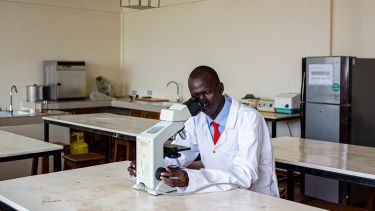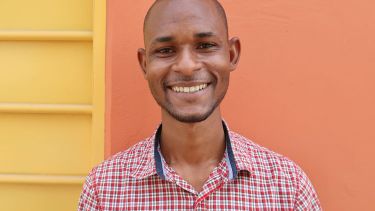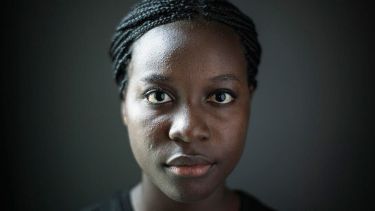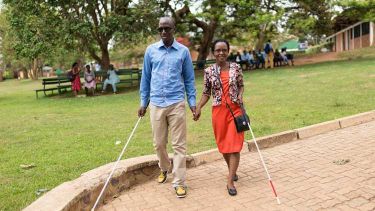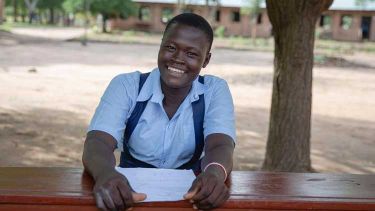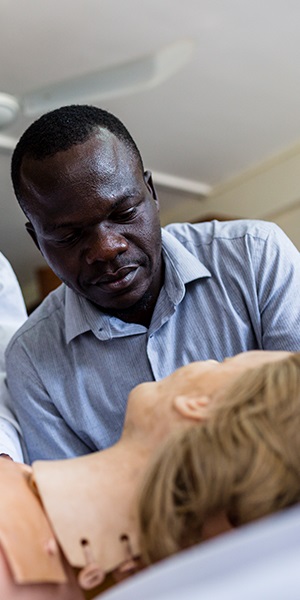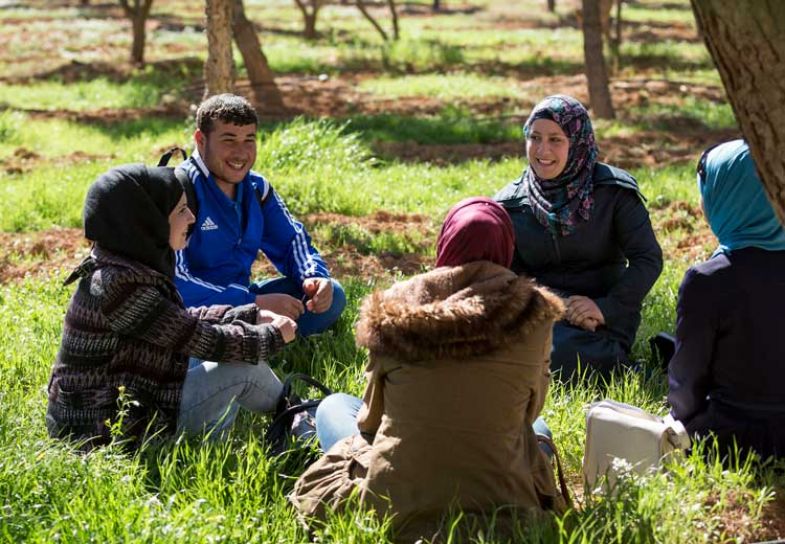
By forging new pathways to access higher education, UNHCR – the UN Refugee Agency hopes to meet its ambitious goal for student enrolment
One of the biggest issues facing refugee populations is access to education. Displaced people face considerable obstacles to continuing their education, with the situation particularly acute for those wishing to participate in higher education.
UNHCR – the UN Refugee Agency hopes to change this through a number of initiatives. Some are innovative, such as the Connected Learning in Crisis Consortium, which provides technology and support for students requiring alternatives to traditional campus-based higher education. The consortium has seen 25,000 students participate in the programme since 2010. Others, such as the Albert Einstein German Academic Refugee Initiative (DAFI), which is part of UNHCR’s scholarship programme, provide higher education scholarships that ensure financial support for students carrying out their studies.
UNHCR’s goal is for 15 per cent of young refugees to be enrolled in higher education by 2030. Globally, that figure is currently 3 per cent, while in West Central Africa, only 1 per cent have access to higher education. Charlotte Berquin, regional education officer for West Africa at UNHCR, says the pressure to leave education and provide for the family and the cost of higher education – with refugee students often considered international students by higher education institutions, and subject to higher course fees – are the two biggest barriers students face.
“The idea and the global aim of the DAFI programme makes it possible to address these two main obstacles thanks to the provision of school scholarships covering all the costs associated with higher education study,” says Ms Berquin. “In 2020, for example, the DAFI programme supported 732 students in 15 countries in the region with scholarships to access higher education in the host country.”
One of UNHCR’s ambitions is to achieve gender parity for university enrolment. At present, 61 per cent of DAFI students in West Central Africa are male. One way of tackling this inequality is through direct financial intervention, which empowers female students to act with agency. UNHCR is also involved with refugee communities and encourages DAFI students to act as role models for their peers. “They engage in activism and advocacy,” says Ms Berquin. “We know that the strongest protection against forced marriage and early pregnancy is to improve education access and retention. In Cameroon, within the national DAFI Club, they created the Girls Leadership Group, and this group is very regularly conducting awareness campaigns for girls’ education. They are going into camps, they are talking to refugee leaders, their families, to encourage the enrolment of girls in schools.”
Agatha Abi-Aad, UNHCR associate education officer in Lebanon, says all of these initiatives must work together to produce results. “I strongly believe that Connected Learning is an essential tool to allow the UNHCR to achieve the [15 by 30] goal,” says Ms Abi-Aad. “They have developed a playbook that can guide any institution, university or NGO with the standards to help them develop their Connected Learning. [But] it is a combination of everything, as well as reaching out to non-traditional donors who might be inclined to help support scholarships.”
Ms Abi-Aad explains that scholarships create a virtuous cycle, with high-skilled graduates well placed to contribute to society and drive economic growth. “It is a win-win situation. They see that if they invest in youth, they can easily gain on the other side.
“With regards to the host country, we know that education is the most powerful driver of integration in a society,” adds Ms Berquin. “It allows them to invest in their host country and also give back to their community. This is also the best way to make sure students feel like they belong to the student community, and not to be labelled only as refugees.”
At present, the DAFI programme is funded by the German, Danish and Czech governments, private donors and foundations. The UNHCR has launched the Aiming Higher crowdfunding campaign, which hopes to finance five students’ scholarships by February as part of its wider 15 by 30 goal. But, Ms Berquin explains, the campaign is about more than that. She hopes it will raise awareness and inspire others to pursue higher education. “The long-term goal of the programme is also to contribute to the development of the refugee student’s home country, empowering a generation of future leaders.”
Find out more about UNHCR’s Aiming Higher campaign and contribute to its crowdfunding efforts.

